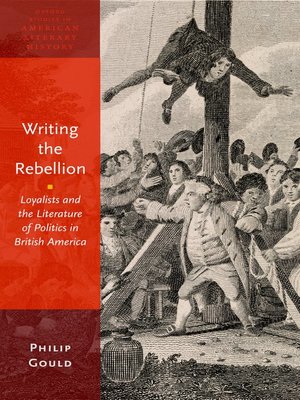Writing the Rebellion
ebook ∣ Loyalists and the Literature of Politics in British America · Oxford Studies in American Literary History
By Philip Gould

Sign up to save your library
With an OverDrive account, you can save your favorite libraries for at-a-glance information about availability. Find out more about OverDrive accounts.
Find this title in Libby, the library reading app by OverDrive.



Search for a digital library with this title
Title found at these libraries:
| Library Name | Distance |
|---|---|
| Loading... |
Writing the Rebellion presents a cultural history of loyalist writing in early America. There has been a spate of related works recently, but Philip Gould's narrative offers a completely different view of the loyalist/patriot contentions than appears in any of these accounts. By focusing on the literary projections of the loyalist cause, Gould dissolves the old legend that loyalists were more British than American, and patriots the embodiment of a new sensibility drawn from their American situation and upbringing. He shows that both sides claimed to be heritors of British civil discourse, Old World learning, and the genius of English culture. The first half of Writing Rebellion deals with the ways "political disputation spilled into arguments about style, form, and aesthetics, as though these subjects could secure (or ruin) the very status of political authorship." Chapters in this section illustrate how loyalists attack patriot rhetoric by invoking British satires of an inflated Whig style by Alexander Pope and Jonathan Swift. Another chapter turns to Loyalist critiques of Congressional language and especially the Continental Association, which was responsible for radical and increasingly violent measures against the Loyalists. The second half of Gould's book looks at satiric adaptations of the ancient ballad tradition to see what happens when patriots and loyalists interpret and adapt the same text (or texts) for distinctive yet related purposes. The last two chapters look at the Loyalist response to Thomas Paine's Common Sense and the ways the concept of the author became defined in early America. Throughout the manuscript, Gould acknowledges the purchase English literary culture continued to have in revolutionary America, even among revolutionaries.







